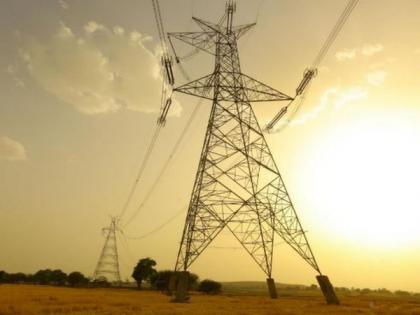Gencos opt to pay penalty rather than work at optimum capacity
By ANI | Published: April 21, 2022 06:54 PM2022-04-21T18:54:12+5:302022-04-21T19:05:02+5:30
With temperatures soaring and demand for electricity increasing each passing day, power generation companies (Gencos) are choosing to pay penalties rather than produce electricity to the optimum capacity due to the surge in the price of imported coal.

Gencos opt to pay penalty rather than work at optimum capacity
With temperatures soaring and demand for electricity increasing each passing day, power generation companies (Gencos) are choosing to pay penalties rather than produce electricity to the optimum capacity due to the surge in the price of imported coal.
There are supply disruptions due to the Russia-Ukraine conflict which has led to a sharp increase in the price of imported coal impacting companies which run captive power plants. Imported coal costs have risen to $288 per tonne from $50 per tonne last year.
Sources toldthat captive power plants in the country based on imported coal have a capacity of 17, 630 megawatts. These captive power plants have the capacity to generate 339 Million Units (MU) of power, but due to a surge in imported coal prices, they have reduced their power generation capacity to 160 MU - 179 MU decrease.
According to April 13 data, imported coal-based plants are operating on average at 26 per cent capacity. Both power and industrial sectors are now largely dependent on domestic coal, as imports become increasingly uneconomical.
Though generating power, these power generation companies are paying a penalty of 30 paisa/unit to their respective states as per the Power Purchase Agreements (PPAs).
Power generation companies such as Essar Power, Tata Power, Adani Power, GMR Power are unable to supply electricity to respective states as per the PPAs. States such as Punjab, Haryana, Rajasthan, Maharashtra, Tamil Nadu and Karnataka are facing power shortages as power plants dependent on imported coal have reduced power generation. Such states are purchasing electricity from the market costing the exchequer nearly Rs 11-12/unit.
As power plants have decided to reduce their operating capacity on imported coal, pressure has risen on domestic coal producers to supply coal to these plants. This has disrupted the coal supply to those power generation companies that were dependent on domestic coal.
Sources toldthat as the power plants cut their coal import, extra burden has been mounting on coal companies like Coal India Limited and Singareni Collieries Company to supply additional coal of around 3.7 MT to meet the shortage.
Sources toldthat the Centre has issued directions to states including Punjab, Haryana, Rajasthan, Maharastra, Tamil Nadu and Karnataka to revise their PPAs with power generation companies. If states do not revise their PPAs to resolve the issue, the Centre is likely to cut the coal supply to such states.
Sources said the states are resorting to some measures suggested by the Centre as they face record electricity demand amid projections of further rise.
( With inputs from ANI )
Disclaimer: This post has been auto-published from an agency feed without any modifications to the text and has not been reviewed by an editor
Open in app